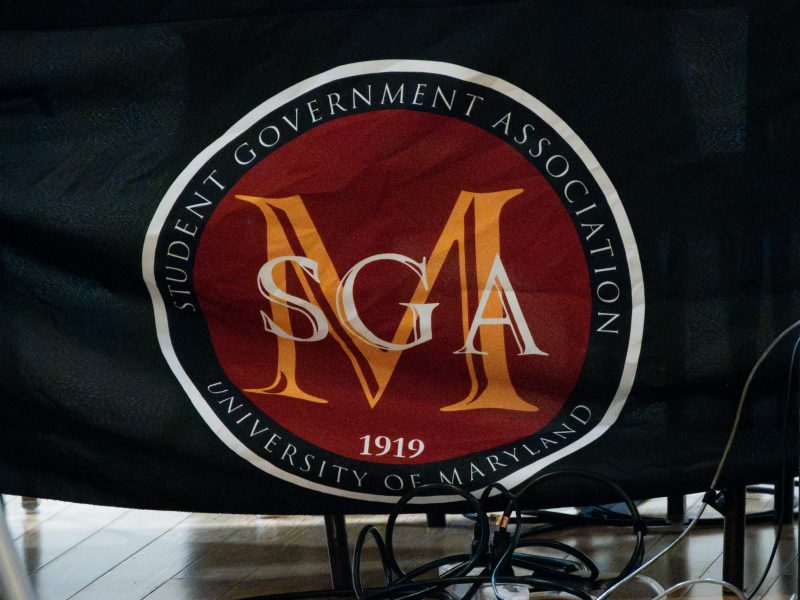The Graduate Student Government hosted a town hall Monday in Stamp Student Union to discuss student workers’ labor issues and to rally support for collective bargaining rights on the University of Maryland campus.
The town hall was part of a revitalized effort by the Fearless Student Employees Coalition this semester to push for collective bargaining rights for graduate assistants on the campus. The GSG officially passed legislation to support collective bargaining on Nov. 4. For graduate assistants, collective bargaining could help them negotiate over their salaries, family leave, intellectual property rights and other issues.
The event featured a four-person panel with representatives from different groups that make up the FSE coalition, including Stephanie Cork, GSG president; Will Howell, a Graduate Assistant Advisory Committee member; Viraj Patel, a Student Labor Action Project member; and Morgan Hess, an United Academics of Maryland organizer. The panel members each spoke briefly about what their different organizations could offer in terms of educating the community, researching labor issues and pushing for legislation at the state level. After an initial information session, students broke into four groups led by a representative of one of the organizations to learn more specifically about how they could get involved.
About 35 people attended the event, which aimed to answer students’ questions about labor issues and educate them about how they could get involved in the effort to bring collective bargaining rights to graduate students in the University System of Maryland, said Katie Brown, GSG’s vice president for public relations.
While there have been major pushes for student workers’ collective bargaining rights on this campus before, this coalition now has the backing of undergraduates through its partnership with the Student Government Association, Cork said.
“Historically, [the] Graduate Student Government kind of acted in a vacuum,” said Cork, a kinesiology doctoral student. “Undergraduates and graduates have to work together for us to be able to change this at the university [and] at the state level.”
This university currently handles graduate labor issues through a meet-and-confer process, which guarantees periodic meetings with the administration but no negotiations over labor conditions. The meet-and-confer process has been successful with some minor issues, such as streamlining paperwork and making it easier for students to pay their fees in increments, said Howell, a communication doctoral student.
But because the administration isn’t required to negotiate with GAAC, which represents graduates during the meet-and-confer process, it has left more pressing graduate assistant issues untouched, he added.
“Having a coalition like this and garnering power between these communities will really allow us to bring that conversation to the forefront, to [the administration], and force them to answer us and deal with us directly,” Patel said. “For a long time now they’ve been trying to avoid that.”
In its early stages, the coalition is strongly focusing on educating graduate students about their lack of employee status and its associated rights.
“They don’t know what rights they’re being denied,” Hess said. “The goal is that by the end of the year, hopefully we can help to educate the student employee population on campus, and then moving forward we can have more people involved in these conversations.”
The event was a successful first step in showing interested students how the different groups plan to collaborate to push for collective bargaining rights, Cork said. Going forward, the coalition plans to recruit more people and gather more support before bringing their case to the Maryland state Senate this spring, Cork said.


